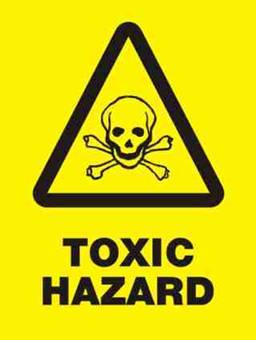Unfinished symphony

We live in a leadership-toxic climate. The system is toxic itself, because we live in a chronically anxious society, almost like a seatbelt-society, that is more oriented towards security than adventure. In this circumstance of anxiety most of the time a resistance to leadership doesn’t occur out of problematic issues, but merely out of the fact that someone took initiative and responsibility (a.k.a. simply by being a leader).
These are not my thoughts, these are the thoughts of Edwin M. Friedmann in his book: “A Failure of Nerve: Leadership in the Age of the Quick Fix”, I read this week.
His main thesis in the book is: there is a “failure of nerve” in society (especially the US-American society) today: Anxiety, that harms many forms of healthy leadership today. For Friedmann there is only one solution to our leadership crisis and that is by dealing with the anxiety of others by a clear, decisive, well-defined leadership. To do so, the leader has to manage self-differentiation: the emotional process of regulating ones own anxiety.
“There exists throughout America today a rampant sabotaging of leaders who try to stand tall amidst the raging anxiety-storms of our time. It is a highly reactive atmosphere pervading all the institutions of our society — a regressive mood that contaminates the decision-making processes of government and corporations at the highest level, and, on the local level, seeps down into the deliberations of neighborhood church, synagogue, hospital, library, and school boards.”
In his deeply profound book, Friedmann offers a leadership system, which is emotion-processed. Having gained experiences out of counseling and mentoring relationships with families and companies, he transfers his observations into general concepts. He is able to apply insights of family systems to broad leadership situations either for parents of presidents.
Even though the book is somewhat dark and pessimistic for long parts, the main drive is towards a motivation to a bigger courage for leaders and the bravery risking adventures.
This self-differentiation, dealing with ones own anxieties empowers leaders to focus on own strengths and the inner self of the leader. This positive self-referential focus, Friedmann suggests, transforms leaderships situations, because the leaders identifies the own participation in the group dynamic and is able to focus on a changing role in this process.
Friedmann calls this state a “well-differentiated leader:”
“It is not someone who autocratically tells others what to do or coercively orders them around, although any leader who defines him- or herself clearly may be perceived that way by those who are not taking responsibility for their own emotional being and destiny. Rather, I mean someone who has clarity about his or her life goals, and, therefore, someone who is less likely to become lost in the anxious emotional processes swirling about.”
This development of a personal integrity and a non-anxious presence ensures autonomy of group processes. By being self-reflected and self-focused the leader is independent for the benefit of the group.
They can be separate individuals while staying connected to the group. They can both nurture and challenge without getting caught up in a group’s anxiety about change or crisis. They can cope situations of sabotage and risk upsetting people to foster growth and maturity in their organizations, whether that organization is a family, a business, or a nation.
In his unfinished leadership symphony (Friedman died before completing the text) the second half of the book seems a little rough outlined and sketchy.
In my opinion the most fascinating thoughts were in the second chapter “The Nationalization of a Neurosis: Society in Regression,” in with Friedmann enfolds the main crisis of society: being chronically anxious.
He features five distinguishing characteristics: reactivity, hearding, blame displacement, a quick-fix mentality, and a lack of well-differentiated leadership. By doing so, Friedman offers a set of tools, concepts and principles to help leaders diagnose complex situations and to determine what is helpful and what is harmful.
This concept of leadership and organization assessment reminded me of Margaret Wheatley’s work on regulation processes in organizations.
For Friedmann, as for Wheatley, leadership can no longer be seen as a top down, hierarchical directing of others. It is the reflection of smaller units in the system (the leader itself) to impact the larger system.
This sounds very simple and easy, but in real life and authentic leadership situations, this attitude takes a lot of patience, courage and foresight. Friedmann for example talks about settings, wherethe most dependent members of churches set the agendas and drive the institution rather than the most energetic, visionary imaginative and motivated.
In our parishes, we assume most of the time, that this “failure of nerve” is in the system, lies in problematic circumstances or topics or in group-dynamics. Friedmann would diagnose the main problem in the anxiety and regression of the group organization and in the missing self-differentiation of the leader.
- How suitable is this interpretation for everyday use in leadership?
- Is it more stuck in a diagnose state than supplying with a solution?
- What would you have added to Friedmanns “unfinished magnus opus”, if you were one of the editors supplementing and completing the book?
Leave a Reply
You must be logged in to post a comment.